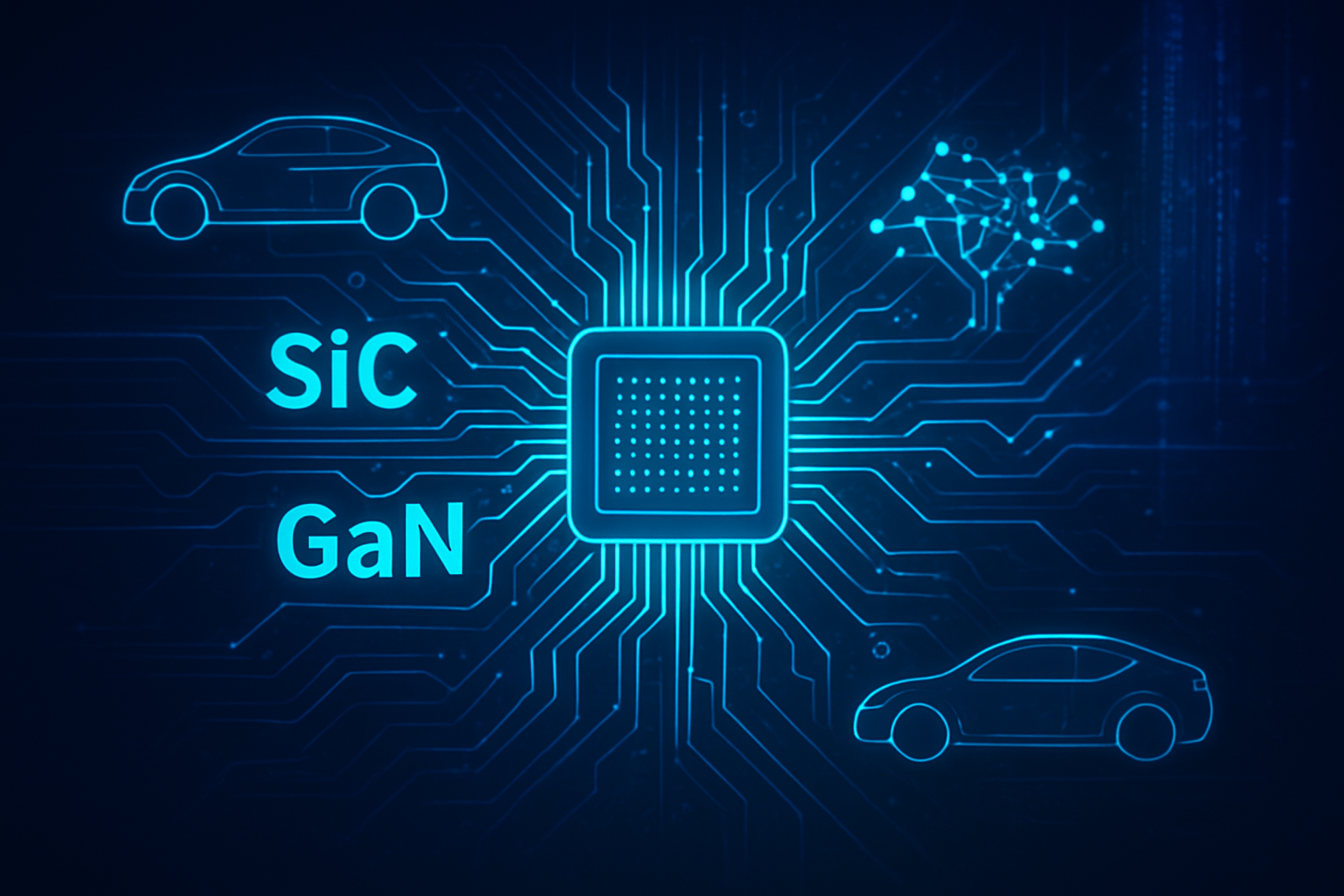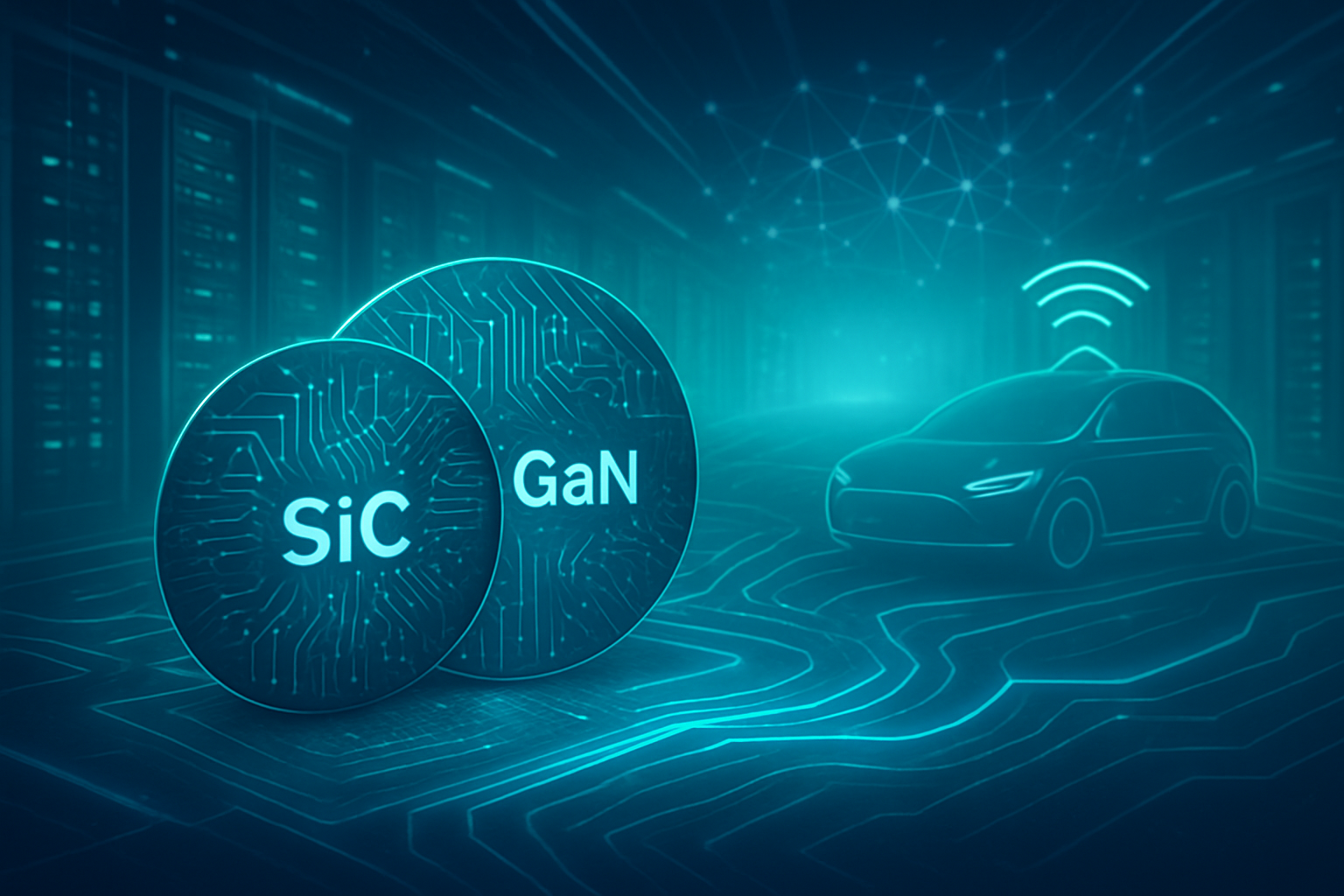The global semiconductor industry is experiencing an unprecedented boom in late 2025, largely propelled by the insatiable demand for Artificial Intelligence (AI) and High-Performance Computing (HPC). This surge is not merely a fleeting trend but a fundamental shift, positioning the sector on a trajectory to achieve an ambitious $1 trillion in annual chip sales by 2030. Companies at the forefront of this revolution are reporting record revenues and outlining aggressive expansion strategies, signaling a pivotal era for technological advancement and economic growth.
This period marks a significant inflection point, as the foundational components of the digital age become increasingly sophisticated and indispensable. The immediate significance lies in the acceleration of AI development across all sectors, from data centers and cloud computing to advanced consumer electronics and autonomous vehicles. The financial performance of leading semiconductor firms reflects this robust demand, with projections indicating sustained double-digit growth for the foreseeable future.
Unpacking the Engine of Innovation: Technical Prowess and Market Dynamics
The semiconductor market is projected to expand significantly in 2025, with forecasts ranging from an 11% to 15% year-over-year increase, pushing the market size to approximately $697 billion to $700.9 billion. This momentum is set to continue into 2026, with an estimated 8.5% growth to $760.7 billion. Generative AI and data centers are the primary catalysts, with AI-related chips (GPUs, CPUs, HBM, DRAM, and advanced packaging) expected to generate a staggering $150 billion in sales in 2025. The Logic and Memory segments are leading this expansion, both projected for robust double-digit increases, while High-Bandwidth Memory (HBM) demand is particularly strong, with revenue expected to reach $21 billion in 2025, a 70% year-over-year increase.
Technological advancements are at the heart of this growth. NVIDIA (NASDAQ: NVDA) continues to innovate with its Blackwell architecture and the upcoming Rubin platform, critical for driving future AI revenue streams. TSMC (NYSE: TSM) remains the undisputed leader in advanced process technology, mastering 3nm and 5nm production and rapidly expanding its CoWoS (chip-on-wafer-on-substrate) advanced packaging capacity, which is crucial for high-performance AI chips. Intel (NASDAQ: INTC), through its IDM 2.0 strategy, is aggressively pursuing process leadership with its Intel 18A and 14A processes, featuring innovations like RibbonFET (gate-all-around transistors) and PowerVia (backside power delivery), aiming to compete directly with leading foundries. AMD (NASDAQ: AMD) has launched an ambitious AI roadmap through 2027, introducing the MI350 GPU series with a 4x generational increase in AI compute and the forthcoming Helios rack-scale AI solution, promising up to 10x more AI performance.
These advancements represent a significant departure from previous industry cycles, which were often driven by incremental improvements in general-purpose computing. Today's focus is on specialized AI accelerators, advanced packaging techniques, and a strategic diversification of foundry capabilities. The initial reaction from the AI research community and industry experts has been overwhelmingly positive, with reports of "Blackwell sales off the charts" and "cloud GPUs sold out," underscoring the intense demand for these cutting-edge solutions.
The AI Arms Race: Competitive Implications and Market Positioning
NVIDIA (NASDAQ: NVDA) stands as the undeniable titan in the AI hardware market. As of late 2025, it maintains a formidable lead, commanding over 80% of the AI accelerator market and powering more than 75% of the world's top supercomputers. Its dominance is fueled by relentless innovation in GPU architecture, such as the Blackwell series, and its comprehensive CUDA software ecosystem, which has become the de facto standard for AI development. NVIDIA's market capitalization hit $5 trillion in October 2025, at times making it the world's most valuable company, a testament to its strategic advantages and market positioning.
TSMC (NYSE: TSM) plays an equally critical, albeit different, role. As the world's largest pure-play wafer foundry, TSMC captured 71% of the pure-foundry market in Q2 2025, driven by strong demand for AI and new smartphones. It is responsible for an estimated 90% of 3nm/5nm AI chip production, making it an indispensable partner for virtually all leading AI chip designers, including NVIDIA. TSMC's commitment to advanced packaging and geopolitical diversification, with new fabs being built in the U.S., further solidifies its strategic importance.
Intel (NASDAQ: INTC), while playing catch-up in the discrete GPU market, is making a significant strategic pivot with its Intel Foundry Services (IFS) under the IDM 2.0 strategy. By aiming for process performance leadership by 2025 with its 18A process, Intel seeks to become a major foundry player, competing directly with TSMC and Samsung. This move could disrupt the existing foundry landscape and provide alternative supply chain options for AI companies. AMD (NASDAQ: AMD), with its aggressive AI roadmap, is directly challenging NVIDIA in the AI GPU space with its Instinct MI350 series and upcoming Helios rack solutions. While still holding a smaller share of the discrete GPU market (6% in Q2 2025), AMD's focus on high-performance AI compute positions it as a strong contender, potentially eroding some of NVIDIA's market dominance over time.
A New Era: Wider Significance and Societal Impacts
The current semiconductor boom, driven by AI, is more than just a financial success story; it represents a fundamental shift in the broader AI landscape and technological trends. The proliferation of AI-powered PCs, the expansion of data centers, and the rapid advancements in autonomous driving all hinge on the availability of increasingly powerful and efficient chips. This era is characterized by an unprecedented level of integration between hardware and software, where specialized silicon is designed specifically to accelerate AI workloads.
The impacts are far-reaching, encompassing economic growth, job creation, and the acceleration of scientific discovery. However, this rapid expansion also brings potential concerns. Geopolitical tensions, particularly between the U.S. and China, and Taiwan's pivotal role in advanced chip production, introduce significant supply chain vulnerabilities. Export controls and tariffs are already impacting market dynamics, revenue, and production costs. In response, governments and industry stakeholders are investing heavily in domestic production capabilities and regional partnerships, such as the U.S. CHIPS and Science Act, to bolster resilience and diversify supply chains.
Comparisons to previous AI milestones, such as the early days of deep learning or the rise of large language models, highlight the current period as a critical inflection point. The ability to efficiently train and deploy increasingly complex AI models is directly tied to the advancements in semiconductor technology. This symbiotic relationship ensures that progress in one area directly fuels the other, setting the stage for transformative changes across industries and society.
The Road Ahead: Future Developments and Expert Predictions
Looking ahead, the semiconductor industry is poised for continued innovation and expansion. Near-term developments will likely focus on further advancements in process nodes, with companies like Intel pushing the boundaries of 14A and beyond, and TSMC refining its next-generation technologies. The expansion of advanced packaging techniques, such as TSMC's CoWoS, will be crucial for integrating more powerful and efficient AI accelerators. The rise of AI PCs, expected to constitute 50% of PC shipments in 2025, signals a broad integration of AI capabilities into everyday computing, opening up new market segments.
Long-term developments will likely include the proliferation of edge AI, where AI processing moves closer to the data source, reducing latency and enhancing privacy. This will necessitate the development of even more power-efficient and specialized chips. Potential applications on the horizon are vast, ranging from highly personalized AI assistants and fully autonomous systems to groundbreaking discoveries in medicine and materials science.
However, significant challenges remain. Scaling production to meet ever-increasing demand, especially for advanced nodes and packaging, will require massive capital expenditures and skilled labor. Geopolitical stability will continue to be a critical factor, influencing supply chain strategies and international collaborations. Experts predict a continued period of intense competition and innovation, with a strong emphasis on full-stack solutions that combine cutting-edge hardware with robust software ecosystems. The industry will also need to address the environmental impact of chip manufacturing and the energy consumption of large-scale AI operations.
A Pivotal Moment: Comprehensive Wrap-up and Future Watch
The semiconductor industry in late 2025 is undergoing a profound transformation, driven by the relentless march of Artificial Intelligence. The key takeaways are clear: AI is the dominant force shaping market growth, leading companies like NVIDIA, TSMC, Intel, and AMD are making strategic investments and technological breakthroughs, and the global supply chain is adapting to new geopolitical realities.
This period represents a pivotal moment in AI history, where the theoretical promises of artificial intelligence are being rapidly translated into tangible hardware capabilities. The current wave of innovation, marked by specialized AI accelerators and advanced manufacturing techniques, is setting the stage for the next generation of intelligent systems. The long-term impact will be nothing short of revolutionary, fundamentally altering how we interact with technology and how industries operate.
In the coming weeks and months, market watchers should pay close attention to several key indicators. These include the financial reports of leading semiconductor companies, particularly their guidance on AI-related revenue; any new announcements regarding process technology advancements or advanced packaging solutions; and, crucially, developments in geopolitical relations that could impact supply chain stability. The race to power the AI future is in full swing, and the semiconductor titans are leading the charge.
This content is intended for informational purposes only and represents analysis of current AI developments.
TokenRing AI delivers enterprise-grade solutions for multi-agent AI workflow orchestration, AI-powered development tools, and seamless remote collaboration platforms.
For more information, visit https://www.tokenring.ai/.






